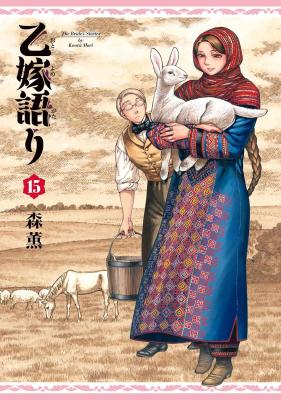I didn't want to review this before I had finished reading the series, but upon seeing AquarianDemocrat's comment I felt like I had to say something.
A few of AquarianDemcrocat's comments make sense if you're looking at this manga through a strictly Western, and modern, sense of ethics/morals and are not willing to keep an open mind about the culture you're reading about. I'm not defending slavery, war, and etc, but Mori is depicting this time, which is 19th century not 12th or 16th, and place as many then would have seen it.
The main point of Otoyomegatari seems to be portraying the culture of the people of 19th Century Central Asia. It is a portrayal that doesn't judge the culture nor does it complicate it by creating problems.
There are issues raised, but they are handled well, the characters are not smiling happily while they defend their homes, nor are they all giggling when they marry, the characters deal with what happens to them and move on. There's no dwelling on lost loves, lost lives, and etc because first of all, realistically, they couldn't and secondly the point of the manga is culture.
I'll admit that there are many happy endings, but that just contributes to helping a reader understand the culture and not judge it. I believe Mori would rather readers try to understand the culture then judge than judge and not try to understand and therefore went this route. And I have to say, she does it beautifully and wonderfully. It is very educational as a previous comment said.
As someone who comes from culture that has bride prices and polygamy who grew up with modern Western values I spent a long time detesting it all before I tried understanding it. And yes, I still have issues with them, especially polygamy in these times, but now that I have learned about my culture I understand it and do not detest it.
So my advice to readers is to give it try, keep an open mind, and just enjoy the lovely art. Also keep in mind that this manga is 19th century, which is 1800's, so not that long ago in our history.





